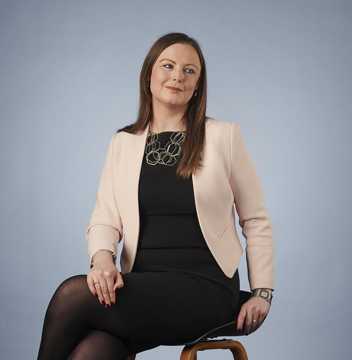Now that the Chancellor of the Exchequer, Rachel Reeves MP, has delivered her first Budget, we thought it would be worth taking a look at what this might mean for charities here in Scotland, and across the UK.
The Chancellor announced that the national minimum wage for 18-20 year olds will increase to £10.00 per hour, with the national living wage for those aged 21 and above increasing by 6.7% to £12.21 per hour.
Taken alongside the increase to employer national insurance contributions (“NICs”), rising to 15%, this will add to the significant financial pressure faced by charities in the UK, who are already battling against increasing costs, reduced funding, and higher demand for their services.
While the public sector will not shoulder the burden of the increase to NICs, the Chancellor made no reference to the charity sector. Charities are now awaiting clarification from Rachel Reeves on whether, like the public sector, they will be reimbursed for increases to NICs.
In a joint letter to the Chancellor, the Scottish Council for Voluntary Organisations (SCVO), the National Council for Voluntary Organisations (NCVO), the Northern Ireland Council for Voluntary Action (NICVA) and Wales Council for Voluntary Action (WcVA) have called for clarity the matter and ensure the charities sector does not face any additional financial burden.
That said, the increase to the employers’ allowance, from £5,000 to £10,500, may bring a small boost for charities with smaller payrolls. In addition, the threshold for claiming the allowance will be removed, meaning that more charities may be able to benefit from the UK Government initiative that will allow employers to reduce their national insurance liability by up to £10,500 for the 2025/26 tax year.
The government’s decision to keep inheritance tax (“IHT”) incentives in place for those who choose to leave a legacy to charity will also reassure charities. Alongside these IHT incentives, it is anticipated the rise in capital gains tax (“CGT”) will see investors and beneficiaries of their wills donating more to charities as a way to mitigate their exposure to the increase. Taken together, charities could potentially see a rise in charitable giving in the years ahead.
While charities can find some good news in the Budget, uncertainty around whether they will be reimbursed for increased NICs, and the Budget’s failure to address underlying issues in the sector in terms of reduced funding and increased demand, mean that this may not have been the fiscal event that charities were hoping for from the new government. We in the Burness Paull charities team, together with our specialist corporate tax colleagues, are keeping a watching brief on these issues. Please feel free to get in touch if we can assist at all.
Written by

Emma Maxwell
Director
Third Sector & Charity
Emma regularly provides advice to a range of public sector clients including a large number of local authorities, as well as housing associations.

Emma Manson
Senior Solicitor
Third Sector & Charity
Emma is a Senior Solicitor in our Glasgow office.

Harry Grieve
Trainee Solicitor
Harry is a trainee solicitor at Burness Paull.
Related News, Insights & Events
Error.
No results.

Celebrating Charity Trustees’ Week 2025
07/11/2025
In this blog, we provide our top tips for charity trustees to achieve and maintain good governance.

Cyber security breaches survey 2025 - the key takeaways for charities
22/05/2025
The blog offers a summary and analysis of the Cyber Security Breaches Survey 2025, with a focus on the UK charity sector.

Charity complaints and freedom of information – How much does OSCR have to disclose?
06/01/2025
The Scottish Information Commissioner recently decided that the OSCR had ‘generally’ complied with the FOISA when withholding information about a charity that was the subject of an ongoing inquiry.
{name}
{properties.pageSummary}
{properties.headline}
{properties.pageDate|date:dd/MM/yyyy}
{properties.shortDescription}
